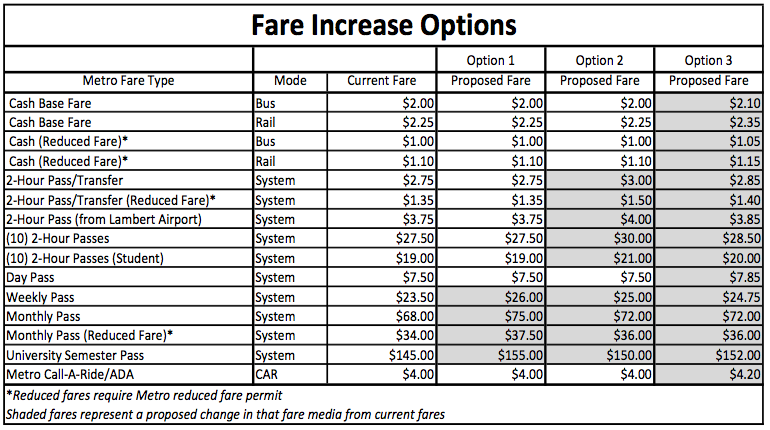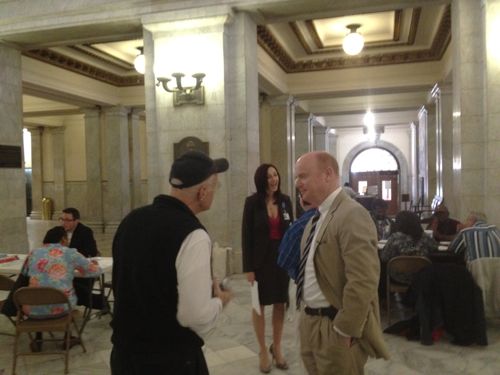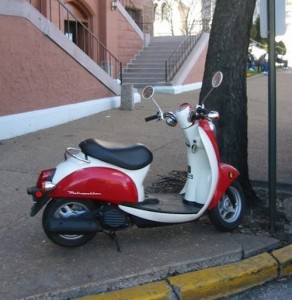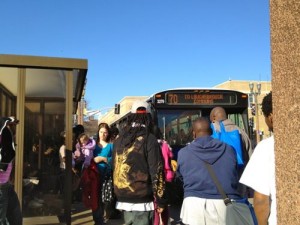June 5th Special Election: Metropolitan Sewer District
Four weeks from today voters in St. Louis City & St. Louis County have identical June 5th special election ballots. They contain the same nine items, each to be approved or rejected. Eight of the items are changes to MSD’s charter:
The Charter Plan of the Metropolitan St Louis Sewer District is a blueprint for how MSD is operated. The plan was created when MSD was formed in 1954 and was amended and approved by voters in 2000. These amendments provided MSD with the necessary tools to continue providing quality service and to address additional water quality and stormwater needs that exist or may develop in the years ahead. (Source w/link to actual charter)
The first proposition is related to a recent settlement:
A judge approved the settlement of federal lawsuit against the Metropolitan St. Louis Sewer District, paving the way for $4.7 billion of work over the next 23 years to help clean up local rivers and streams and prevent backups into basements and yards.
The Environmental Protection Agency, state and Missouri Coalition for the Environment filed the lawsuit almost five years ago , citing more than 500 million gallons of raw sewage discharged into local rivers and streams between 2000 and 2006 in violation of the federal Clean Water Act. (stltoday.com — recommended reading)
The following are the ballot items:
PROPOSITION Y
To comply with federal and state clean water requirements, shall The Metropolitan St. Louis Sewer District (MSD) issue its sewer revenue bonds in the amount of Nine Hundred Forty-Five Million Dollars ($945,000,000) for the purpose of designing, constructing, improving, renovating, repairing, replacing and equipping new and existing MSD sewer and drainage facilities and systems, including sewage treatment and disposal plants, sanitary sewers, and acquisition of easements and real property related thereto, the cost of operation and maintenance of said facilities and systems and the principal of and interest on said revenue bonds to be payable solely from the revenues derived by MSD from the operation of its wastewater sewer system, including all future extensions and improvements thereto?
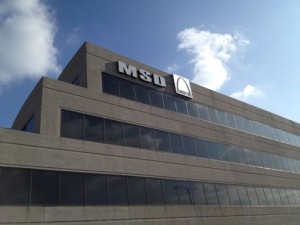
PROPOSITION 1
Shall Article 2 of the Plan (Charter) of The Metropolitan St. Louis Sewer District be amended to provide that the portion of the boundaries of the District that are located within St. Louis County shall be as described in records kept in the office of the Secretary-Treasurer of the District and no longer required to be contained in the text of the plan?
PROPOSITION 2
Shall Articles 3 and 9 of Plan (Charter) of The Metropolitan St. Louis Sewer District be amended to (a) establish procedural requirements relating to the formation of subdistricts within the District and the design, construction and funding of improvements in such subdistricts, and (b) establish the method for levying special benefit assessments, all subject to a vote of the property owners in the affected subdistricts?
PROPOSITION 3
Shall Article 3 of the Plan (Charter) of The Metropolitan St. Louis Sewer District relating to powers of the District be amended to (a) permit the District to establish environmentally sustainable standards and practices, and (b) clarify the existing authority of the District to enter into contracts pertaining to stormwater facilities?
PROPOSITION 4
Shall Articles 5, 7 and 10 of the Plan (Charter) of The Metropolitan St. Louis Sewer District be amended to provide that notice of the expiration of the term of office of a Director, notice of tax levy hearings, notice of proposed rate changes, and notice of elections under the Plan (Charter) shall be given by mail, publication or electronic media, or such other form of communication as may be permitted by Missouri law?
PROPOSITION 5
Shall Articles 7 and 9 of the Plan (Charter) of The Metropolitan St. Louis Sewer District relating to budget and finance be amended to (a) require the budget of the District to include a list of capital projects, (b) require a public hearing at least 21 days prior to adoption of the budget, and (c) provide that proceedings to make certain improvements shall be initiated by approval of a list of capital projects and a general appropriation ordinance rather than by resolution?
PROPOSITION 6
Shall Article 9 of the Plan (Charter) of The Metropolitan St. Louis Sewer District be amended to permit the District to use design-build and other alternative delivery methods to make improvements, as permitted by Missouri law?
PROPOSITION 7
Shall Article 11 of the Plan (Charter) of The Metropolitan St. Louis Sewer District be amended to provide that a District Plan Amendment Commission shall be appointed on or before July 1, 2019 and every ten years thereafter?
PROPOSITION 8
Shall the Plan (Charter) of The Metropolitan St. Louis Sewer District be amended to (a) make various typographical, grammatical and stylistic revisions to the text thereof, (b) correct outdated statutory citations and references, (c) change gender specific language to gender neutral language, and (d) eliminate the requirement that records of the Board of Trustees maintained by the Secretary-Treasurer be kept in bound or book form?
I’m just now starting the process to research these before election day so I’ll be curious to hear your thoughts.
– Steve Patterson
